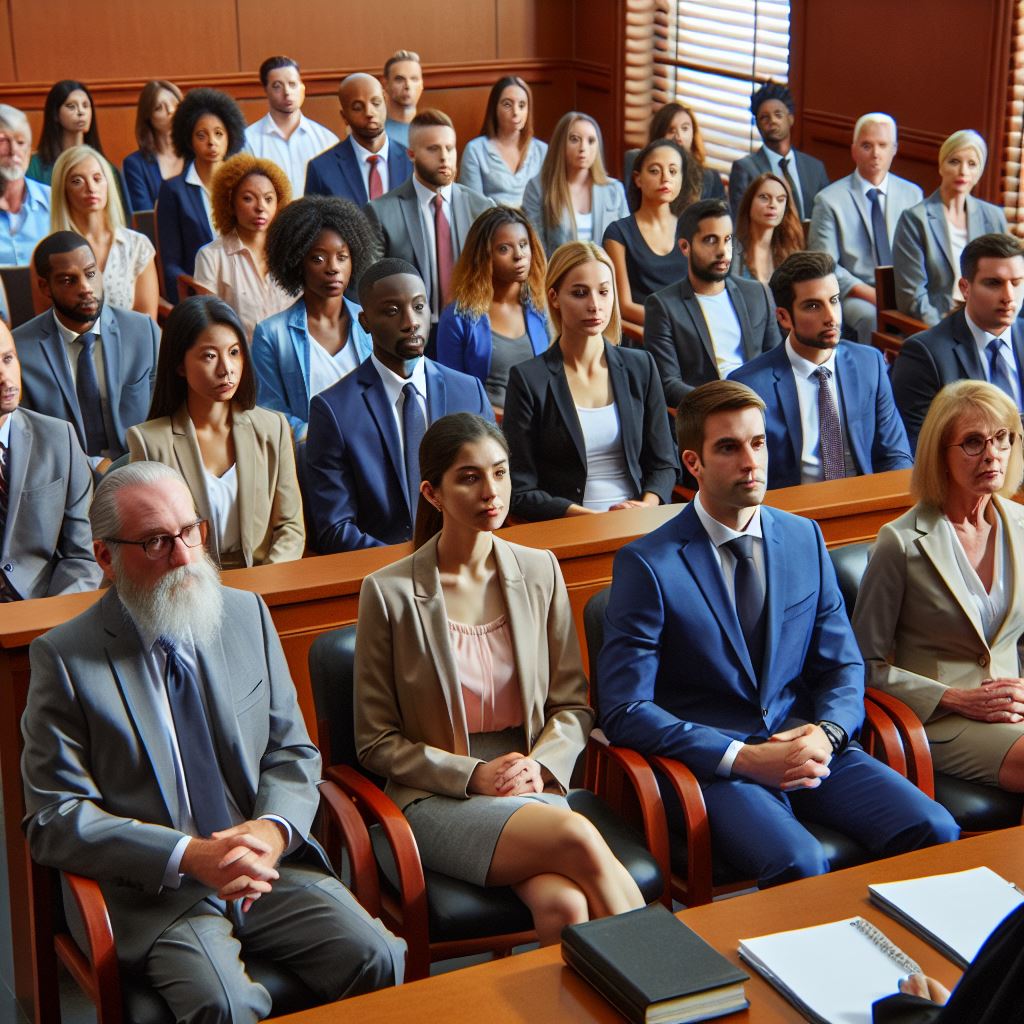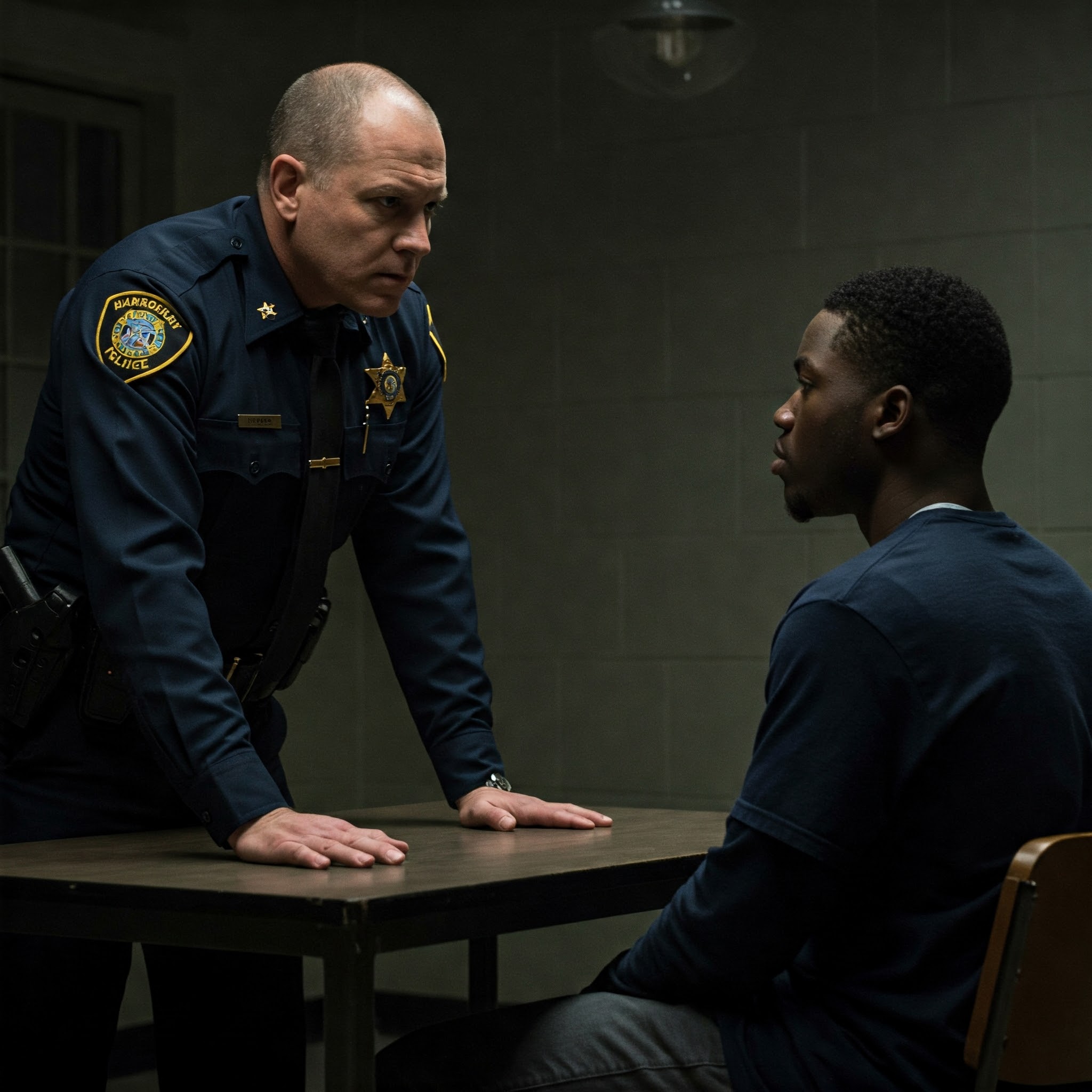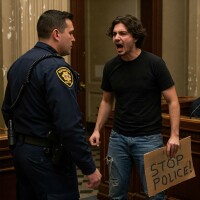Welcome to the University of Wisconsin Law School Legal Analysis, Advocacy, and Writing's Legal Hypothetical Archive. Our searchable database summarizes a range of hypothetical assignments that have been used successfully in our legal writing courses. Each scenario presents a unique fact pattern created by Wisconsin LAAW faculty and includes all the documents needed to create a realistic case file, including transcripts, pleadings, court orders, and assigning memos. We've also included the author's notes that provide insight into the assignment's challenges, organizational structure and other useful pointers.
To Access the Materials:
- Browse the webpage that provides a high-level description of the various assignments. You can use the search bar as well. If you are interested in an assignment, simply click on the title and you will be directed to a page that gives you more detail about the assignment, including the material facts, prompt to students, when the problem was last used, the author, and a description of the case file.
- If you decide this is an assignment you would like to access, click on the title of the assignment, and you will be directed to a Google file with all the assignment material. When requesting permission to access the file, please provide your faculty affiliation. The assignment files will only be accessible to faculty. We want to ensure that students cannot access the actual assignments and/or supporting materials.
We hope that by sharing these hypotheticals with the legal education community we can give faculty another tool to help students navigate realistic factual scenarios that can be used in a variety of ways to engage students to learn how to analyze, assess, and communicate the law.
View the Hypotheticals Archive editing guide (staff only PDF).
Searchable List of Hypotheticals
| Title | Image | Assignment & Research Type | Jurisdiction & Where Set | Area of law | Overview |
|---|---|---|---|---|---|
| Digital Dollar Dilemma |
 |
Objective memo, open-research | Federal, 9th Circuit | Civil procedure, Intellectual property | An American company wants to sue Australia's central bank after discovering that its "digital dollar" infringes on the company's patent. But can this arm of Australia's government be sued in a U.S. court? |
| Illegal Gratuities & Public Officials |
 |
Objective memo, open-research | Federal, 7th Circuit | Criminal | Our client, a general contractor, has been charged in a three-count indictment with alleged violations of the federal "illegal gratuities" statute, 18 U.S.C. § 201(c). This statute prohibits giving items of value to public officials for or because of any official act. The indictment alleges that over a period of several years, the client gave lavish gifts, including Super Bowl tickets and expensive vacations, to two OSHA officials in an effort to curry favor with these officials and/or reward them for certain positions they took or promised to take on proposed OSHA regulations that the client believed were favorable to his company. The assignment asks students to analyze the indictment to determine whether any of the counts are subject to dismissal under Fed. R. Civ. P. 12(b)(6). |
| Medical Leave Accommodation |
 |
Objective memo, open-research | Federal, 7th Circuit | Employment | A biotech scientist was terminated from her position after requesting extended medical leave for a debilitating back condition. The assigning memo asks students to analyze whether the employer violated the Americans with Disabilities Act by failing to provide a reasonable accommodation. |
| Too Old for Tech? |
 |
Objective memo, open-research | Federal, 7th Circuit | Civil procedure, Employment | The Plaintiff lost his federal ADEA lawsuit in Northern District of Illinois but believes bias tainted the jury voir dire. Did the judge err when he allowed one juror but not another to sit on the jury? |
| Silencing the Critics |
 |
Persuasive brief, open-research | Federal, 8th Circuit | Torts, Defamation | Plaintiff sued defendant for defamation. After trial, the court issued an order finding defendant defamed the plaintiff, and issued an injunction preventing the defendant from making similar remarks in the future. Is the injunction prohibiting future language constitutional, and were the defendant's remarks defamatory or merely an opinion? |
| Clowning Around |
 |
Persuasive brief, open-research | Federal, 6th Circuit | Employment | Plaintiff works as a clown. He is suing his employer, Clownster, under the Fair Labor Standards Act asserting that he should be paid for the significant time he spends putting on and taking off his costume. |
| The Day the Music Died |
 |
Persuasive brief, open-research | Federal, 2nd Circuit | Constitutional Law, First Amendment | A musician wanted to perform at a local bandstand in New York City, and he requested a permit from the parks and recreation department for the performance. The parks department denied the request, asserting that the music violated its policies because it is not considered family friendly, Americana music. The musician has now sued the City of New York under 42 U.S.C. sec. 1983. |
| A Babysitter's Castle? |  |
Persuasive brief, open research | State, WI | Criminal | Defendant was babysitting for a client when someone broke into the house where she was staying while watching the children. Defendant did not try to retreat, but immediately shot the intruder. As a result, defendant has been charged with attempted homicide. Defendant has asserted self defense. The question is whether the castle doctrine applies to preclude any inquiry into whether defendant could have safely retreated from whatever threat she thought she faced before firing the gun. |
| Coerced Confession |  |
Objective Memo, open research | State, WI | Criminal | Defendant is an 18-year-old high school student charged with felony hit and run, a class A misdemeanor. While investigating the case the officers interrogated defendant and obtained his confession. The interrogation took place while the defendant was still in high school and was 17 years old. The question is whether the confession is admissible. |
| Bad Break Up |  |
Objective Memo, open research | State, WI | Torts, Abuse of Process | Students are asked to address whether the defendant liable for abuse of process for allegedly filing a claim solely to harass the plaintiff. |
| Do We Have a Prayer? |  |
Appellate Brief, open research | Federal, 7th Circuit | Constitutional Law, Establishment Clause | The school board in this jurisdiction starts every meeting with an invocation. The plaintiff, a high school student, attended a school board meeting that started with a religious invocation. The student then filed a claim for declaratory judgment, asking whether this practice of starting school board meetings with religious invocations violates the Establishment Clause. |
| Let's Settle This |  |
Trial Brief, open research | State, WI | Rules of Ethics | A party in a divorce action filed a grievance against opposing counsel, alleging the attorney acted in an unethical manner during the divorce litigation. The divorce case was eventually settled, but as part of the settlement agreement, the party agreed to withdraw the grievance she had filed with the Office of Lawyer Regulation. The court approved the settlement and the grievance was withdrawn. Although the grievance with withdrawn, the Office of Lawyer regulation continued to investigate the allegations and eventually filed a complaint against the attorney alleging he violated various ethical rules. One count claims that entering into the settlement agreement requiring the plaintiff to withdrawl the grievance violated the Wisconsin rules of ethics. The question is whether an agreement between the attorney and the grievant to withdraw a grievance as part of a settlement violates the Rules of Ethics. |
| Treatment of Pretrial Detainees |  |
Appellate Brief, open research | Federal, 1st Circuit | Constitutional Law, 14th Amendment | Estate filed a claim against an officer alleging the officer violated the pretrial detainee's due process rights by failing to provide the detainee with required medical attention, resulting in the inmate's suicide. |
| You're Fired! |  |
Trial Brief, open research | State, WI | Employment Law | Plaintiff filed a claim against her former employer for wrongful termination. Plaintiff worked two part-time jobs. One was working for the defendant, and one was as a police officer in the small town where she lived. Plaintiff's employer terminated her because plaintiff arrested the employer's daughter. The employer said he felt uncomfortable continuing to employ the plaintiff at his business. |
| Privacy Interests in Online Social Media Accounts |  |
Appellate Brief, open research | State, IN | Constitutional Law |
Client appeals a trial court order denying his motion to suppress evidence in a criminal case. Law enforcement officers discovered stolen property in the client's apartment after they executed a search warrant that officers obtained based on a picture that the client posted in a “Snap” on his private Snapchat account. After his arrest, the client learned that he had unknowingly accepted a “friend” request on Snapchat from an undercover police officer who was posing as his former high school classmate. The officer posing as the client's “friend” used the Snap to obtain a search warrant for the client's apartment, where the stolen items were recovered. The client was then charged with theft by receiving stolen property. The client seeks to supress the evidence arguing the evidence was obtained through an unlawful warrantless search of the private Snapchat account. |
| Sex v. Religion |  |
Appellate Brief, open research | Federal, 4th Circuit | Employment |
A superstar marketing employee sues their employer after their CEO and direct supervisor intentionally misgender them over a twelve-month period. Did the employee suffer a hostile work environment under Title VII, or was the CEO right that he couldn't police pronouns and run his company at the same time? |
| Young Dennis's Drone |  |
Appellate Brief, open research | State, MN | Civil Procedure, Torts |
A child flew a drone into a picnicker, causing significant injuries. The picnicker sued the child's parents claiming that the parents should be liable under theories of negligent entrustment and negligent supervision. The parents were found not liable after a jury trial. Students must draft the picknicker's appellate brief, arguing that the trial court erred in instructing the jury. |
| Dog Sniff Dilemma |  |
Memo, open research | State, WI | Constitutional Law, 4th Amendment |
Client was arrested and charged with possession with intent to distribute marijuana after a drug-sniffing dog “alerted” outside the door of the room in which he was living at a local extended stay hotel. Is the evidence found in the client's room inadmissible because the warrant was based on information obtained through an illegal search that violated Michael’s rights under the Fourth Amendment to the U.S. Constitution? |
| RV Living |  |
Persuasive Brief, open research | State, WI | Constitutional Law, 4th Amendment |
The defendant was arrested after police searched the RV he was living in and found drugs. The defendant's RV was parked on a farm, and the defendant worked for the farm owner. When the defendant didn't show up for work one morning, the owner became concerned, and asked the police to check on the defendant. The owners was out of town, and if the defendant was not able to milk the cows, the health of the cows would be jeopardized. When the police knocked on the door of the RV, there was no answer, so the officer opened the unlocked door and found a methamphetamine lab. The question is whether the defendant's fourth amendment rights were violated. |
| Law-Life Balance? |  |
Persuasive Brief, open research | Federal, Dist. Ct. Wis. | Torts, FMLA |
This case involves an FMLA claim. Plaintiff, an attorney, left work to care for her close friend, an elderly neighbor who cared for her often while she was young. Unfortunately, at the time she took leave, plaintiff was involved as a key member of the trial team that was headed to trial on a large case. While plaintiff worked with attorneys on her team to help them while she was on leave, at one point plaintiff left her neighbor's side to speak to the partner at her firm on trial tactics, since the trial was starting the next day, and unfortunately her neighbor died. Plaintiff was upset, so she quit her job and then filed suit against the firm for violating her right to take FMLA leave. |
| Protest Arrest |  |
Appellate Brief, open research | Federal, 7th Circuit | Constitutional Law |
This case involves a First Amendment retaliatory arrest claim under 42 U.S.C. § 1983, in which plaintiff John Greer alleges that he was unlawfully arrested by Officer Brody during an August 2024 protest. The questions on appeal are whether Brody lacked probable cause for the arrest and if not, whether Greer presented sufficient evidence of selective enforcement based on his protected speech. |
Hypotheticals Full Details
All hypotheticals and their full details are listed below.
Clowning Around
 Plaintiff works as a clown. He is suing his employer, Clownster, under the Fair Labor Standards Act asserting that he should be paid for the significant time he spends putting on and taking off his costume.
Plaintiff works as a clown. He is suing his employer, Clownster, under the Fair Labor Standards Act asserting that he should be paid for the significant time he spends putting on and taking off his costume.
Author: UW LAAW Team
Last Used: 2019 Spring
Facts: Emmitt Kelly, known to his fans as Waltico the Wondrous Water Spaniel, performs as a wildly popular clown that brings joy to countless children and thousands of dollars of profit to his employer, Clownster. Mr. Kelly takes pride in his work and invests extra time putting together an elaborate and creative costume. This extra time that Mr. Kelly spends has quickly made Waltico the most famous clown in town and brought an enormous amount of business to Clownster. Clownster, however, refuses to compensate Mr. Kelly for the extra time that he spends preparing for his gigs.
Prompt: Mr. Kelly has filed a suit against Clownster alleging that Clownster violated the Fair Labor Standards Act. The parties are filing cross-motions for summary judgment and the students are asked to draft the brief in support of their client's motion.
Case File Includes: Complaint, Answer, deposition transcripts and corresponding exhibits.
Digital Dollar Dilemma
 An American company wants to sue Australia's central bank after discovering that its "digital dollar" infringes on the company's patent. But can this arm of Australia's government be sued in a U.S. court?
An American company wants to sue Australia's central bank after discovering that its "digital dollar" infringes on the company's patent. But can this arm of Australia's government be sued in a U.S. court?
Author: Dustin Brown
Last Used: 2024 Fall
Facts: The Reserve Bank of Australia (the country's central bank) has just announced that it is piloting a "digital dollar" that relies on green technology, making it more environmentally friendly than other cryptocurrencies. To develop its digital dollar, the bank has partnered with a disgruntled ex-employee of an American company, Greenvest Global, which now believes that Australia's central bank has used its proprietary technology and infringed its patent.
Prompt: The CEO of Greenvest Global wants to sue the Reserve Bank of Australia for patent infringement. Having concluded that their patent infringement claim is strong, the company's in-house attorney is now asking the student to determine whether an agency of a foreign state can be sued in a U.S. court under these circumstances.
Case File Includes: A press release from the Reserve Bank of Australia announcing its digital dollar pilot program; an internal email exchange within Greenvest Global about the likely patent infringement; Greenvest Global's website, which provides background on the company; and a story by NPR's Planet Money program about central bank digital currencies.
Illegal Gratuities & Public Officials
 Our client, a general contractor, has been charged in a three-count indictment with alleged violations of the federal "illegal gratuities" statute, 18 U.S.C. § 201(c). This statute prohibits giving items of value to public officials for or because of any official act. The indictment alleges that over a period of several years, the client gave lavish gifts, including Super Bowl tickets and expensive vacations, to two OSHA officials in an effort to curry favor with these officials and/or reward them for certain positions they took or promised to take on proposed OSHA regulations that the client believed were favorable to his company. The assignment asks students to analyze the indictment to determine whether any of the counts are subject to dismissal under Fed. R. Civ. P. 12(b)(6).
Our client, a general contractor, has been charged in a three-count indictment with alleged violations of the federal "illegal gratuities" statute, 18 U.S.C. § 201(c). This statute prohibits giving items of value to public officials for or because of any official act. The indictment alleges that over a period of several years, the client gave lavish gifts, including Super Bowl tickets and expensive vacations, to two OSHA officials in an effort to curry favor with these officials and/or reward them for certain positions they took or promised to take on proposed OSHA regulations that the client believed were favorable to his company. The assignment asks students to analyze the indictment to determine whether any of the counts are subject to dismissal under Fed. R. Civ. P. 12(b)(6).
Author: Ashby Fox
Last Used: 2020 Fall
Facts: Our client, Malcolm Preis, has been charged in a three-count indictment for allegedly paying illegal gratuities to OSHA officials in violation of 18 U.S.C. § 201(c). Preis is a general contractor whose company, BestPreis Builders, LLC, specializes in constructing large, mixed-use retail/residential developments in Milwaukee, Wisconsin. Preis is the owner and the sole member/manager of the company. The indictment alleges that over a period of several years, Preis illegally gave lavish gifts, including Super Bowl tickets/trips, fine wines/food, and expensive vacations at his Door County lake house to two OSHA officials - the Milwaukee Area Director and a member of the influential Advisory Committee on Construction Safety and Health. The Government alleges that these gifts were illegal gratuities that Preis paid in an effort to curry favor with these public officials and/or reward them for certain positions they took or promised to take on proposed OSHA regulations that Preis believed were favorable to his company.
Prompt: Preis wants to know whether any of the counts in the indictment might be subject to dismissal under Fed. R. Civ. P. 12(b)(6).
Case File Includes: A three-count grand jury indictment and a transcript of a phone interview with the client discussing the underlying facts at issue in the indictment.
Medical Leave Accommodation
 A biotech scientist was terminated from her position after requesting extended medical leave for a debilitating back condition. The assigning memo asks students to analyze whether the employer violated the Americans with Disabilities Act by failing to provide a reasonable accommodation.
A biotech scientist was terminated from her position after requesting extended medical leave for a debilitating back condition. The assigning memo asks students to analyze whether the employer violated the Americans with Disabilities Act by failing to provide a reasonable accommodation.
Author: Desmund Wu
Last Used: 2018 Fall
Facts: Mei-Ling Zhou, a scientist at Lijiang Lifesciences, was terminated after requesting additional medical leave to recover from a debilitating back condition caused by a herniated disc. Zhou initially took four weeks of approved unpaid leave for surgery and recovery, but despite her efforts to return to work, her pain persisted. When she requested further extensions supported by her doctor, Lijiang’s human resources department, citing doubts about her ability to return, ultimately denied her request and terminated her employment. Zhou is now considering whether Lijiang's actions violated the Americans with Disabilities Act by failing to provide a reasonable accommodation.
Prompt: A scientist has been terminated after requesting additional medical leave to address a debilitating health condition. The employer claims the termination was justified, but the student must assess whether the company’s actions comply with legal obligations to accommodate employees facing medical challenges.
Case File Includes: Interview summary, doctor's notes.
Silencing the Critics
 Plaintiff sued defendant for defamation. After trial, the court issued an order finding defendant defamed the plaintiff, and issued an injunction preventing the defendant from making similar remarks in the future. Is the injunction prohibiting future language constitutional, and were the defendant's remarks defamatory or merely an opinion?
Plaintiff sued defendant for defamation. After trial, the court issued an order finding defendant defamed the plaintiff, and issued an injunction preventing the defendant from making similar remarks in the future. Is the injunction prohibiting future language constitutional, and were the defendant's remarks defamatory or merely an opinion?
Author: Kim Peterson
Last Used: 2019 Spring
Facts: Plaintiff, a criminal defense attorney, represented a defendant in an assault case. As part of the defense, she cross-examined a child witness in a rather aggressive manner. Some court observers found the plaintiff's tactics a bit unsavory. The criminal defendant was ultimately acquitted. After the trial, the assault victim's son made disparaging remarks about the plaintiff, both to her and to various media outlets. He even picketed her house. Plaintiff sued the son for defamation. After trial to the court, the court issued an injunction prohibiting the defendant from making similar remarks in the future.
Prompt: The defendant wants to appeal the injunction and the finding of defamation. The defendant believes that the injunction is unconstitutional and that the statements he made are not defamatory, but mere opinion.
Case File Includes: Complaint, Order, Trial Transcript, defendant's tweets.
The Day the Music Died
A musician wanted to perform at a local bandstand in New York City, and he requested a permit from the parks and recreation department for the performance. The parks department denied the request, asserting that the music violated its policies because it is not considered family friendly, Americana music. The musician has now sued the City of New York under 42 U.S.C. sec. 1983.
Author: UW LAAW Team
Last Used: 2023 Spring
Facts: Plaintiff Tobe Nwigwe, a loved rap and hip hop artist whose music is faith-based and who sings about social issues affecting African Americans and other communities of color, sought a permit from the New York City Parks and Recreation Department to perform at the local bandstand. His permit was denied, however, because the head of the NYCPR, Bumper Smith, determined that Mr. Nwigwe's music violated the policy that music at the bandstand be family-friendly, Americana music.
Prompt: The parties are filing cross motions for summary judgment and the students are asked to file a brief in support of their client.
Case File Includes: Complaint, Answer, two deposition transcripts and various exhibits including : (1) NYC Resolution adopting the Seaside Bandstand policy (and including the policy), (2) NYC Local Law creating the Strike Up the Band Subcommittee, (3) Queen’s Chronicle 10/10/85, (4) Seaside Bandstand Performance Application, (5) NYC Local Law repealing the Seaside Bandstand Subcommittee, (6) Email Exchange between Bond and Smith, (7) Queen’s Chronicle 10/10/15, (8) Queen’s Chronicle 7/5/17, and (9) Mr. Nwigwe’s proposal to play at the Seaside Bandstand.
Too Old for Tech?
 The Plaintiff lost his federal ADEA lawsuit in the Northern District of Illinois but believes bias tainted the jury voir dire. Did the judge err when he allowed one potential juror but not another to sit on the jury?
The Plaintiff lost his federal ADEA lawsuit in the Northern District of Illinois but believes bias tainted the jury voir dire. Did the judge err when he allowed one potential juror but not another to sit on the jury?
Author: John Strange
Last Used: 2023 Fall
Facts: Fifty-six-year-old Charlie Knuckles sued Qualtrics, Inc. after being passed over for an opportunity to lead the company's development of AI software in favor of a 27-year-old worker with far less experience. During jury selection, one potential juror told the judge he didn't know what all the fuss was about: "everyone knows younger people are better than older people at tech." Despite Knuckles's attorney's objection, the judge empaneled this juror. Later in the jury selection process, Qualtrics's counsel used a peremptory strike to remove a Black juror. The judge rejected Charlie's attorney's Batson challenge and empaneled that juror too, even though the legitimate non-discriminatory reasons Qualtrics's attorney gave for striking the Black juror could have equally applied to a white juror the attorney did not strike.
Prompt: Charlie would like to know if he can get a new trial. Please review the jury voir dire transcript to see if the judge made any errors during the jury selection process that could result in a new trial.
Case File Includes: Transcript of Jury Voir Dire, Plaintiff's proposed voir dire questions.
A Babysitter's Castle?
 Defendant was babysitting for a client when someone broke into the house where she was staying while watching the children. Defendant did not try to retreat, but immediately shot the intruder. As a result, defendant has been charged with attempted homicide. Defendant has asserted self defense. The question is whether the castle doctrine applies to preclude any inquiry into whether defendant could have safely retreated from whatever threat she thought she faced before firing the gun.
Defendant was babysitting for a client when someone broke into the house where she was staying while watching the children. Defendant did not try to retreat, but immediately shot the intruder. As a result, defendant has been charged with attempted homicide. Defendant has asserted self defense. The question is whether the castle doctrine applies to preclude any inquiry into whether defendant could have safely retreated from whatever threat she thought she faced before firing the gun.
Author: UW LAAW Team
Last Used: 2018 Spring
Facts: Isla Garber was nannying two young children for the weekend. An intruder breaking into the house woke Ms. Garber as she slept. Fearing for the nearby children, she went to investigate and encountered a large man in the kitchen. As he turned toward her, she shot him. Ms. Garber was charged with attempted first-degree intentional homicide. Now, Ms. Garber is requesting jury instructions on several privileges, including the castle doctrine, which holds an actor has no duty to retreat in the face of an unlawful intruder.
Prompt: The judge has asked the parties to brief the issue of whether the castle doctrine applies in this case. The court has asked the parties to file simultaneous briefs.
Case File Includes: Complaint, Trial Transcript excerpts.
Coerced Confession
 Defendant is an 18-year-old high school student charged with felony hit and run, a class A misdemeanor. While investigating the case, the officers interrogated defendant and obtained his confession. The interrogation took place while the defendant was still in high school and was 17 years old. The question is whether the confession is admissible.
Defendant is an 18-year-old high school student charged with felony hit and run, a class A misdemeanor. While investigating the case, the officers interrogated defendant and obtained his confession. The interrogation took place while the defendant was still in high school and was 17 years old. The question is whether the confession is admissible.
Author: Kim Peterson
Last Used: Fall 2022
Facts: In February of 2022, Luis Narvaez was charged with a felony hit and run. At the time of the alleged crime, Mr. Narvaez was seventeen years old and a student at Shorewood High school in Milwaukee. Mr. Narvaez does drive a model and color of car that is similar to the one caught on camera hitting the victim, and he did have a small accident involving a pole the day before the alleged incident. The victim of the hit and run is Ms. Winston, the mother of a Milwaukee Alderman. Mr. Narvaez was interrogated by police officers with the Milwaukee Police Department. This was Mr. Narvaez’s first experience with police. The interrogation began at 1:20 P.M. and lasted for nearly five hours. The interrogation was conducted by two different police officers who each employed tactics and pressures in efforts to induce a confession. The interview ended at 6:02 P.M., when Mr. Narvaez gave a signed confession stating that he had hit Ms. Winston on his way home from running errands.
Prompt: Students are asked to write a memo to the partner in the law firm discussing whether Mr. Narvaez's confession was coerced.
Case File Includes: Assigning memo and transcript of the interrogation.
Bad Break Up
 Students are asked to address whether the defendant liable for abuse of process for allegedly filing a claim solely to harass the plaintiff.
Students are asked to address whether the defendant liable for abuse of process for allegedly filing a claim solely to harass the plaintiff.
Author: Kim Peterson
Last Used: Fall 2022
Facts: Jeff Holtz is being sued by Robert Slak for abuse of process. In January 2021, Mr. Holtz, an attorney, filed a claim on behalf of his client, Tyler Brown, suing Mr. Brown’s ex-girlfriend, Danielle Schroeder, for the alleged theft of a coin collection. At the time of this suit, Ms. Schroeder was dating Mr. Slak, who was running for political office. In November 2021, Ms. Schroeder had moved in with Mr. Slak, and Mr. Holtz thought that perhaps Mr. Slak knew where the coins were. Mr. Holtz sent a letter to Mr. Slak asking for information about the coin collection and pointing out the possible legal consequences if Mr. Slak was knowingly hiding them. Text messages between Mr. Holtz and Mr. Brown show that Mr. Brown wanted to involve Mr. Slak to threaten his political career and maybe wreck his relationship with Ms. Schroder. Mr. Slak took offense to the letter and filed an abuse of process claim against Mr. Holtz.
Prompt: Students are asked to analyze the strength of Mr. Slak's claim for abuse of process.
Case File Includes: Complaint, Complaint for Abuse of Process, Answer, Discovery Requests, Answer to Discovery, letter to Holtz, letter to Slak, text messages.
Do we have a prayer?
 The school board in this jurisdiction starts every meeting with an invocation. The plaintiff, a high school student, attended a school board meeting that started with a religious invocation. The student then filed a claim for declaratory judgment, asking whether this practice of starting school board meetings with religious invocations violates the Establishment Clause.
The school board in this jurisdiction starts every meeting with an invocation. The plaintiff, a high school student, attended a school board meeting that started with a religious invocation. The student then filed a claim for declaratory judgment, asking whether this practice of starting school board meetings with religious invocations violates the Establishment Clause.
Author: Kim Peterson
Last Used: Spring 2021
Facts: Plaintiff Madeline Amos was attending a school board meeting and heard the school board begin its proceedings with an invocation made by a priest. While the school board meetings do generally begin with an invocation, the Board allows members of the public to sign up to give the invocation. Ms. Amos believes that being subject to the invocation at the school board meeting violates the Establishment Clause of the First Amendment.
Prompt: Students are asked to draft an appellate brief appealing the trial court's order granting defendant's motion for summary judgment.
Case File Includes: Complaint, Order on Summary Judgment and Stipulated Facts.
Let's Settle This
 A party in a divorce action filed a grievance against opposing counsel, alleging the attorney acted in an unethical manner during the divorce litigation. The divorce case was eventually settled, but as part of the settlement agreement, the party agreed to withdraw the grievance she had filed with the Office of Lawyer Regulation. The court approved the settlement and the grievance was withdrawn. Although the grievance with withdrawn, the Office of Lawyer regulation continued to investigate the allegations and eventually filed a complaint against the attorney alleging he violated various ethical rules. One count claims that entering into the settlement agreement requiring the plaintiff to withdrawl the grievance violated the Wisconsin rules of ethics. The question is whether an agreement between the attorney and the grievant to withdraw a grievance as part of a settlement violates the Rules of Ethics.
A party in a divorce action filed a grievance against opposing counsel, alleging the attorney acted in an unethical manner during the divorce litigation. The divorce case was eventually settled, but as part of the settlement agreement, the party agreed to withdraw the grievance she had filed with the Office of Lawyer Regulation. The court approved the settlement and the grievance was withdrawn. Although the grievance with withdrawn, the Office of Lawyer regulation continued to investigate the allegations and eventually filed a complaint against the attorney alleging he violated various ethical rules. One count claims that entering into the settlement agreement requiring the plaintiff to withdrawl the grievance violated the Wisconsin rules of ethics. The question is whether an agreement between the attorney and the grievant to withdraw a grievance as part of a settlement violates the Rules of Ethics.
Author: Kim Peterson
Last Used: Spring 2013
Facts: Our client is Andrea Graham, who is a family law attorney. She represented Ms. Jenkins in her divorce from Mr. Jenkins. Mr. Jenkins filed a claim with the Office of Lawyer Regulation against Ms. Graham, asserting she acted inappropriately during litigation. Later, the divorce was settled, and in conjunction with the settlement, Mr. Jenkins, with the advice of his attorney, agreed to withdraw the grievance. The settlement agreement was signed by both parties and approved by the court. Later, the Office of Lawyer Regulation filed an ethics complaint against Ms. Graham, and one count was for violating the ethical rules because the attorney conditioned settlement on withdrawing the grievance.
Prompt: Students are asked to draft brief in support of a motion to dismiss one count of an ethics complaint.
Case File Includes: Complaint and assigning memo.
Treatment for Pretrial Detainees
 Estate filed a claim against an officer alleging the officer violated the pretrial detainee's due process rights by failing to provide required medical attention, resulting in the inmate's suicide.
Estate filed a claim against an officer alleging the officer violated the pretrial detainee's due process rights by failing to provide required medical attention, resulting in the inmate's suicide.
Author: Kim Peterson
Last Used: Spring 2023
Facts: Danny Herrington was arrested for disorderly conduct and resisting arrest. As he was being handcuffed, Mr. Herrington told officers that he was anxious and was not comfortable being confined to a cell, and that he was suicidal. While the officer noted the suicide threat on the intake form, he did not verbally inform the intake officer. She did not therefore follow appropriate protocol for a detainee who is a suicide risk. She placed him alone in a cell with a blanket and sheets, and she was not able to see him at all times. The cell was older and had anchor points that could be used to tie a ligature. After Mr. Herrington was left alone for 45 minutes, he was found unconcious in his cell, and he later died. Mr. Herrington's estate is suing for 14th Amendment violations under 42 U.S.C. sec. 1983. The trial court granted defendant's motion for summary judgment and this case has been appealed.
Prompt: Students are asked to draft the brief on appeal.
Case File Includes: Complaint, Answer, Order, trial testimony excerpts, intake form.
You're Fired!
 Plaintiff filed a claim against her former employer for wrongful termination. Plaintiff worked two part-time jobs. One was working for the defendant, and one was as a police officer in the small town where she lived. Plaintiff's employer terminated her because plaintiff arrested the employer's daughter. The employer said he felt uncomfortable continuing to employ the plaintiff at his business.
Plaintiff filed a claim against her former employer for wrongful termination. Plaintiff worked two part-time jobs. One was working for the defendant, and one was as a police officer in the small town where she lived. Plaintiff's employer terminated her because plaintiff arrested the employer's daughter. The employer said he felt uncomfortable continuing to employ the plaintiff at his business.
Author: Kim Peterson
Last Used: Spring 2014
Facts: Plaintiff Diane Kraft, was hired as a bookeeper for Stone Bank Construction. She works at Stone Bank Construction part time, and also works part time as a police officer for the town of Merton. While working as an officer, Ms. Kraft arrested Annie Beyer for shoplifting. Annie is the daughter of John Beyer, who is the president of Stone Bank Construction. Ms. Kraft was scheduled to testify at Annie Beyer's trial but prior to the hearing Mr. Beyer asked to meet with Ms. Kraft to discuss her anticipated testimony. After the conversation Mr. Beyer terminated Ms. Kraft from Stone Bank Construction, saying he was not comfortable working with her because she had arrested his daughter.
Prompt: Students are asked to draft a response to defendant's motion for summary judgment.
Case File Includes: Complaint, Motion for Summary Judgment, Affidavit in Support of Motion, Notice of Motion for Summary Judgment, offense report, interview notes, employment agreement, filing letter.
Privacy Interests in Online Social Media Accounts
Defendant files a motion to suppress evidence obtained from a warrantless search of his private Snapchat account. 
Author: Ashby Fox
Last Used: Fall 2023
Facts: We represent Ronald (“Ronnie”) Williams on his appeal of a state trial court order denying his Motion to Suppress Evidence in a criminal case. Ronnie was charged with multiple felony counts of theft by receiving stolen property. The charges included felony theft for receiving a stolen firearm, and felony theft for receiving a stolen Rolex watch valued at $8,500. Law enforcement discovered these items in Ronnie’s apartment after they executed a search warrant that officers obtained based on a picture that Ronnie posted online in a “Snap” on his private Snapchat account. After his arrest, Ronnie learned that he had unknowingly accepted a “friend” request on Snapchat from an undercover police officer who was posing as Ronnie’s former high school classmate. The officer posing as Ronnie’s “friend” used the Snap that Ronnie posted on Snapchat to obtain the search warrant for Ronnie’s apartment, where the stolen items were recovered.
Ronnie moved to suppress the evidence obtained from the search of his apartment, arguing that the search warrant was invalid because it was obtained based on an unlawful, warrantless search of his private online Snapchat account. After the trial judge denied his Motion to Suppress, and fearful of what might happen to him at trial, Ronnie entered a conditional guilty plea on the charges but reserved the right to appeal the order denying the motion to suppress.
Prompt: Students are asked to draft an appellate brief arguing that the state trial court's order denying Ronnie's motion to suppress evidence should be reversed and that the evidence found during the illegal search of his apartment should be suppressed. Students should argue that that search of Ronnie's apartment violated his Fourth Amendment rights because the search warrant used in the search of his residence was based on an unlawful, warrantless search of his private online Snapchat account.
Case File Includes: Affidavit of Ronald Odell Williams (the client); Affidavit of Officer Kenneth Collins (the police officer that impersonated Ronnie's friend through a fake profile to gain access to Ronnie's Snapchat account); and the trial court's Order Denying Defendant's Motion to Suppress Evidence.
Sex v. Religion
A superstar marketing employee sues their employer after their CEO and direct supervisor intentionally misgender them over a twelve-month period. Did the employee suffer a hostile work environment under Title VII, or was the CEO right that he couldn't police pronouns and run his company at the same time?
Author: John Strange
Last Used: Spring, 2024
Facts: Taylor McKenzie is a superstar marketing employee who changes their pronouns shortly after receiving a promotion to marketing lead for the 2022 NASCAR race season. Trouble begins, however, when McKenzie then requests their company CEO and direct supervisor use their pronouns in company meetings. And things get really complicated when the direct supervisor formally requests that the CEO grant her a religious accommodation not to use McKenzie's pronouns. What ensues is year of intentional misgendering and two severe incidents of gender discrimination and harassment. But is that a enough to clear the Fourth Circuit's high bar for hostile work environment claims?
Prompt: McKenzie sued their employer for creating a sexually hostile work environment under Title VII. But the trial court granted summary judgment for the employer, ruling that the employer's behavior was neither frequent nor severe enough to constitute a hostile work environment. As part of its analysis, the trial court held that Title VII required the employer to grant the supervisor's request for religious accommodation not to use McKenzie's pronouns, thus essentially excusing over eighty instances of misgendering.
Case File Includes: Complaint, Answer, Stipulation of Undisputed Material Facts, Decision and Order, Deposition of Taylor McKenzie , Deposition of Richard Brand, Deposition of Janet Thompson, Deposition of Rachel Zwick, Deposition of Jim Martin, 2022 NASCAR Cup Series Schedule.
Young Dennis's Drone

A child flew a drone into a picnicker, causing significant injuries. The picnicker sued the child's parents claiming that the parents should be liable under theories of negligent entrustment and negligent supervision. The parents were found not liable after a jury trial. Students must draft the picknicker's appellate brief, arguing that the trial court erred in instructing the jury.
Authors: Andrew Norman and Ashby Fox
Last Used: Spring, 2025
Facts: Henry and Alice Mitchell gave their son, Dennis, a new drone for his twelfth birthday. He immediately crashed the drone into a neighbor, Dr. George Wilson, causing injuries that ended Dr. Wilson's career as a surgeon. This was not Dennis's first drone. This was also not the first time Dennis had crashed a drone into another person. Dr. Wilson sued Henry and Alice Mitchell, claiming negligent entrustment and negligent supervision. The jury's answers to the Special Verdict form resulted in no liability for the Mitchells.
Prompt: Dr. Wilson's counsel has asked the student to draft Dr. Wilson's appellate brief.
Case File Includes: Plaintiff's Proposed Jury Instructions and Special Verdict Form; Defendants' Proposed Jury Instructions and Special Verdict Form; Trial Transcript, including exhibits; a note from the jury; the judge's response to the jury note; completed Special Verdict Form; Order Denying Motion for New Trial; and Notice of Appeal.
Dog Sniff Dilemma
Author: Ashby Fox 
Last Used: Fall, 2024
Facts: Michael Aronsen, a 20-year-old UW student, is facing serious felony drug charges. If he is convicted of the charged crimes, he faces up to six years in prison and thousands of dollars in fines, not to mention the lifelong impact on his otherwise bright future. In short, Michael was arrested and charged with possession with intent to distribute marijuana after a drug-sniffing dog “alerted” outside the door of the room in which he was living at a local extended stay hotel. Apparently, the police brought the drug dog into the hotel hallway while they were investigating someone else (with no connection to Michael) who had rented another room on the same floor of the hotel. Because the dog “alerted” when it passed by Michael’s door, the police got a search warrant to search Michael’s room. Inside, they found marijuana, a small scale, and $1,300 in cash.
Prompt: I need you to analyze the law and the facts and write a short legal memo discussing whether we could successfully move to suppress the evidence found in Michael’s room on the grounds that the warrant was based on information obtained through an illegal search that violated Michael’s rights under the Fourth Amendment to the U.S. Constitution. I have another associate researching whether the area outside of Michael’s door could be considered “curtilage,” so you do not need to analyze or address that legal issue in your memo.
Access full hypothetical via Google Drive. Please include in the request your faculty affiliation.
Protest Arrest
This case involves a First Amendment retaliatory arrest claim under 42 U.S.C. § 1983, in which plaintiff John Greer alleges that he was unlawfully arrested by Officer Brody during an August 2024 protest. The questions on appeal are whether Brody lacked probable cause for the arrest and if not, whether Greer presented sufficient evidence of selective enforcement based on his protected speech.
Author: Kim Peterson
Last Used: Spring 2025
Facts: In this case, John Greer alleges that he was unlawfully arrested by Officer Brody during an August 2024 protest against police brutality. In support of his case, Greer provided the court with ten incident reports detailing other disorderly conduct arrests and non-arrests over the past year. Brody moved for summary judgment. The court denied Brody's motion finding that the arrest lacked probable cause and that Greer presented sufficient evidence of selective enforcement based on his protected speech. Officer Brody has asked us to appeal the ruling, so we requested and have received permission from the district and appellate courts to appeal the denial.
Prompt: Please research and draft an appellate brief addressing the issues on appeal.
Case File Includes: Record on appeal that includes Complaint, Order, Deposition Transcripts of Brody, Greer, Reyes and Rivers, a photo and ten incident reports.
Access full hypothetial via Google Drive. Please include in the request your faculty affiliation.
RV Living
This case involves defendant's claim that the search of his RV violated his Fourth Amendment rights to be free from unreasonable search and seizure. The question is whether the RV is considered a vehicle or a home for purposes of determining whether the community caretaker exception applies in this case.
Author: UW LAAW Team 
Last Used: Spring, 2024
Facts: In this case, defendant Mark Spitz has filed a motion to suppress the evidence discovered when the Deputy Sheriff entered Spitz's RV while he was sleeping in it. Spitz lives in the RV that sits on farmland owned by his friend and employer. While the employer was out of town, Spitz had not shown up to milk the cows. Concerned for the cows' health, the employer asked the police to stop by to wake up Spitz from his RV. The officer knocked on the door of the RV, but there was no answer, so the officer opened the unlocked door to find Spitz. He found a methamphetimine lab in the RV and arrested Spitz. Spitz alleges that the Deputy Sheriff’s warrantless search violated his Fourth Amendment rights because he was living in the RV.
Prompt: The Court has asked the parties to file simultaneous briefs addressing the issue of whether the RV was a home or a vehicle for purposes of determining whether the community caretaking exception applies in this case.
Case File Includes: Complaint, Defendant's Motion to Supress Evidence, Transcript on Hearing on Motion to Supress, Incident Report, Exhibits, Two Assigning Memos (one for Plaintiff one for Defendant), Trial Brief Template.
Access full hypothetical via Google Drive. Please include in the request your faculty affiliation.
Law-Life Balance
This case involves an FMLA claim filed by plaintiff attorney, alleging she was unable to fully enjoy her FMLA leave to care for her elderly neighbor. The issue is whether plaintiff was entitled to take FMLA leave to care for an elderly neighbor, and if so, whether the firm interfered with her leave.
Author: UW LAAW Team
Last Used: Spring, 2025
Facts: Plaintiff, a lawyer at a large litigation firm, asked to leave work to care for her elderly neighbor, who was alone and in the hospital. Plaintiff had a very close relationship with the neighbor throughout her life. At the time of her leave, plaintiff was working on a high-profile litigation matter that was headed to trial soon. While the firm accommodated her request to be with her neighbor at the hospital, members of the firm periodically asked plaintiff for assistance on matters, as she had some information that was not available through other means. At one point, right before trial when a partner at the firm was asking plaintiff questions about the case, the neighbor died and plaintiff was not able to be by his side. Plantiff was upset and quit the firm, then filed suit against the firm for violating her FMLA rights.
Prompt: Please draft a brief in support of our motion for summary judgment.
Case File Includes: Assigning memo, Complaint, Answer, Deposition Transcripts with email, text message, and documentary exhibits.
Access full hypothetical via Google Drive. Please include in the request your faculty affiliation.
